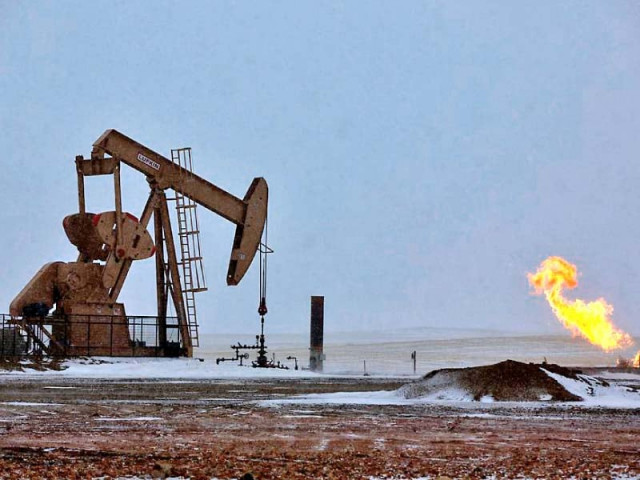Meeting emission standards: Refineries refrain from releasing funds for plant upgrade
They were required to transfer profit above 50% of paid-up capital to escrow account

The reasons given by the refineries for non-compliance included financial constraints, contractual obligations to timely clear bills of international and local vendors and pressure to meet the Dec 2015 deadline. PHOTO: REUTERS
The powerful lobby of oil refineries has failed to comply with a decision of the Economic Coordination Committee (ECC) that requires them to deposit a certain amount of money in an escrow account for upgrading their plants in order to produce fuel that meet Euro-II emission standards.
According to officials familiar with the developments, the ECC’s decision taken on March 8, 2013 bound refineries including National Refinery Limited (NRL), Pakistan Refinery Limited (PRL) and Attock Refinery Limited (ARL) to deposit the amount of profit above 50% of the paid-up capital including the unutilised balance in special reserves as per the pricing formula.
The funds deposited in the escrow account would be spent on setting up isomerisation and other such plants and the money would be released by the Ministry of Finance after verification by the petroleum secretary, said the ECC.
In case the three refineries as well as Byco Petroleum completed the upgrading of their plants by the end of December 2015, the ECC would allow them to collect a higher deemed duty - 9% - on high-speed diesel instead of existing 7.5%.
The ECC decision was conveyed to the refineries for implementation on March 27, 2013.
In this regard, the Ministry of Petroleum and Natural Resources approached the Ministry of Finance for opening the escrow account in order to deposit the special reserves of refineries accumulated since the ECC’s directive.
However, NRL, PRL and ARL rather than transferring the special reserves to the escrow account told the ministry that they had themselves spent the entire reserves for upgrading the refineries.
The reasons given by them for non-compliance, when the petroleum ministry asked them to deposit the reserves, included financial constraints, contractual obligations to timely clear bills of international and local vendors and pressure to meet the December 2015 deadline.
Apart from this, the refineries had also not been able to act according to other directives of the ECC. The committee had asked them to give project-wise details pertaining to committed investment of $2.4 billion for the production of diesel products meeting Euro-II standards in the next two years.
The ECC had also sought third-party certification of the funds accumulated in the special reserves account.
Talking to The Express Tribune, PRL CEO Aftab Hussain said the refinery had been suffering losses for the last three years and, therefore, it had not been able to deposit the money in the escrow account.
Published in The Express Tribune, July 17th, 2015.
Like Business on Facebook, follow @TribuneBiz on Twitter to stay informed and join in the conversation.



















COMMENTS
Comments are moderated and generally will be posted if they are on-topic and not abusive.
For more information, please see our Comments FAQ